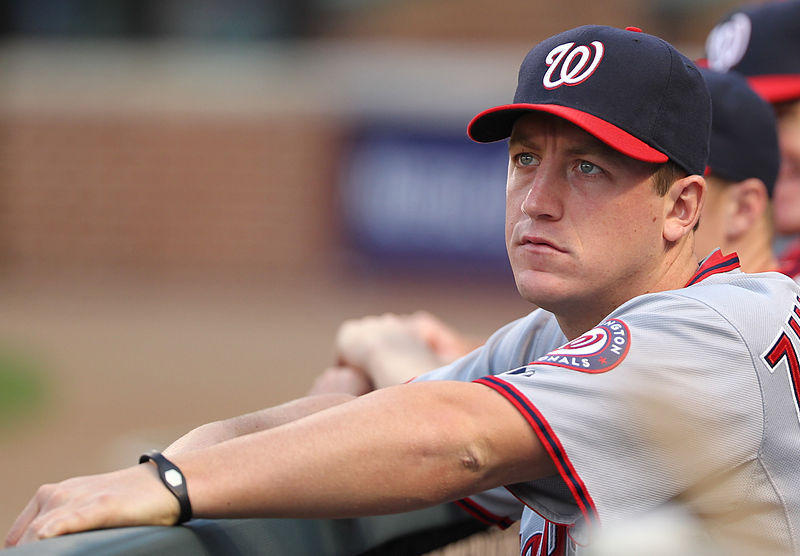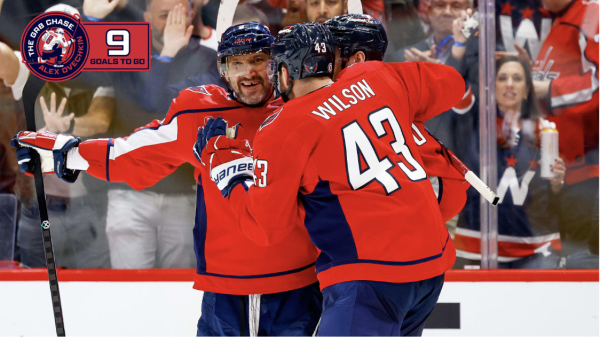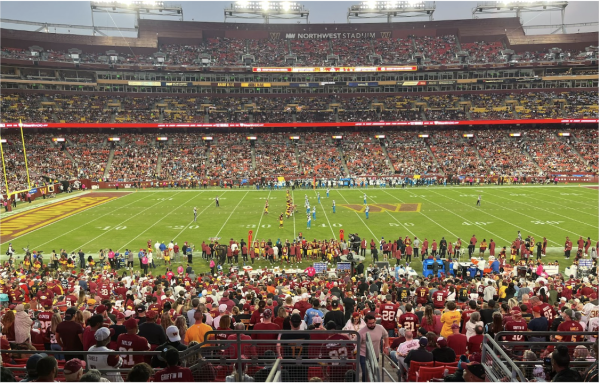Nationals’ woes
On Saturday, September 26, the New York Mets beat the Cincinnati Reds to clinch their first postseason berth since 2006, officially eliminating any chance the Washington Nationals had to get into the postseason. The team not even making the postseason was very underachieving for a team that had World Series aspirations.
Before the season started, the Nationals were predicted to win the World Series by ESPN analysts and MLB Network experts. The signing of elite pitcher Max Scherzer (topping off an already strong starting rotation) and the experience on the field made the Nationals look like be a top contender for the pennant. However, injuries, offensive struggles and pitching inconsistency proved to lessen the Nationals’ postseason chances.
The Nationals endured a large amount of injuries before and during the season. Denard Span, Ryan Zimmerman, Stephen Strasburg, Anthony Rendon and Jayson Werth all had multiple stints on the disabled list (DL) throughout the season. Rendon, Werth and Span, who were all projected opening day starters, began the season on the DL. Span played only 61 games out of the 162 games scheduled and only two games after July 7; he had a .301 batting average in those games. Rendon, coming off a season worth being top five in the MVP voting, has not shown full strength. He has not come close to his .287 batting average from last year and has not been as effective on the base path.
Injuries to star players on the team did not help their offense in any way. Even with an MVP-caliber season from Bryce Harper and Yunel Escobar putting up his career-best offensive numbers, the Nationals still struggled to consistently put together hits and push across runs. Even though the Nationals ranked second in runs in the National League (NL), they ranked seventh in batting average. The main reason the Nationals ranked so high up on the runs list was due to their ability to hit in bursts. “Their offense was fully capable of putting up ten or more runs in a game, but also capable of being shut out,” senior Miles Dulman said.
Just like the offense, the pitching for the Nationals was inconsistent. The Nationals ranked around the middle of the pack for team earned run average (ERA) and their bullpen fell apart toward the end of the season. Since the acquisition of Jonathan Papelbon (Philadelphia Phillies’ closer), the Nationals have lost 11 games in the NL East standings, Drew Storen’s (the closer before the trade) ERA is over six.
Along with the Papelbon trade issue, the starters have been very inconsistent. Scherzer started off the year hot, owning a 2.11 ERA going into the All-Star break. After the break, his ERA has been north of four and has only won three games. Gio Gonzalez has had an overall below average year; his average against is over 40 points higher than last year, along with his ERA.
Stephen Strasburg, who was supposed to be the two starter behind Scherzer, did not pitch much due to injury and, when he did, he would not last long. Strasburg only threw more than five innings in one outing from April 30 to August 8. Even though he has heated up lately, recording four straight starts with 10 or more strikeouts, it is a bit too late for the Nationals.
Despite with the Nationals’ underachieving season, Harper, Escobar, Strasburg and other young talent could be bright spot in the Nationals’ future. Junior Chris Brady said, “Mike Rizzo needs to buckle down and attack the core problems for the Nationals to succeed next year.”








